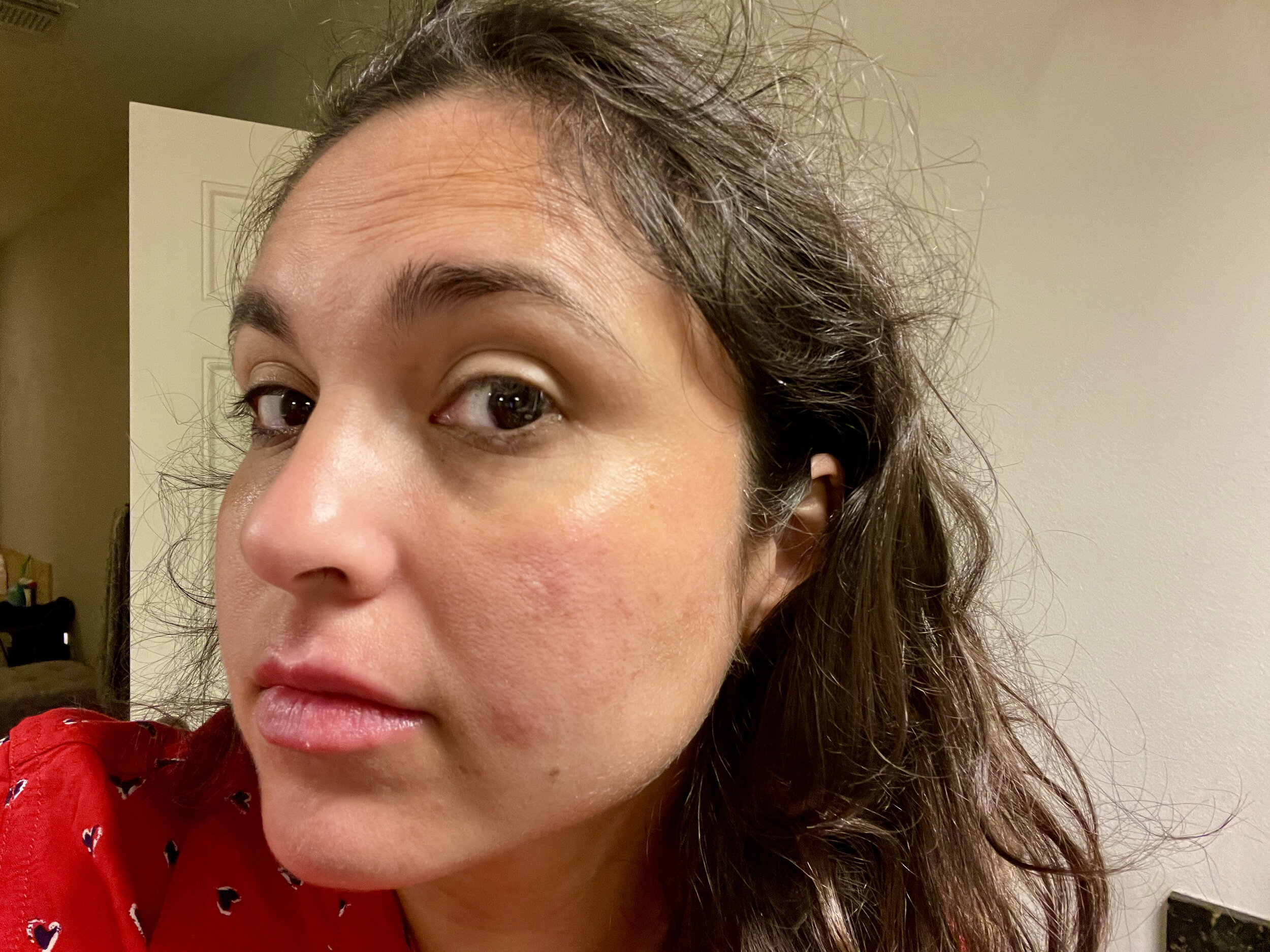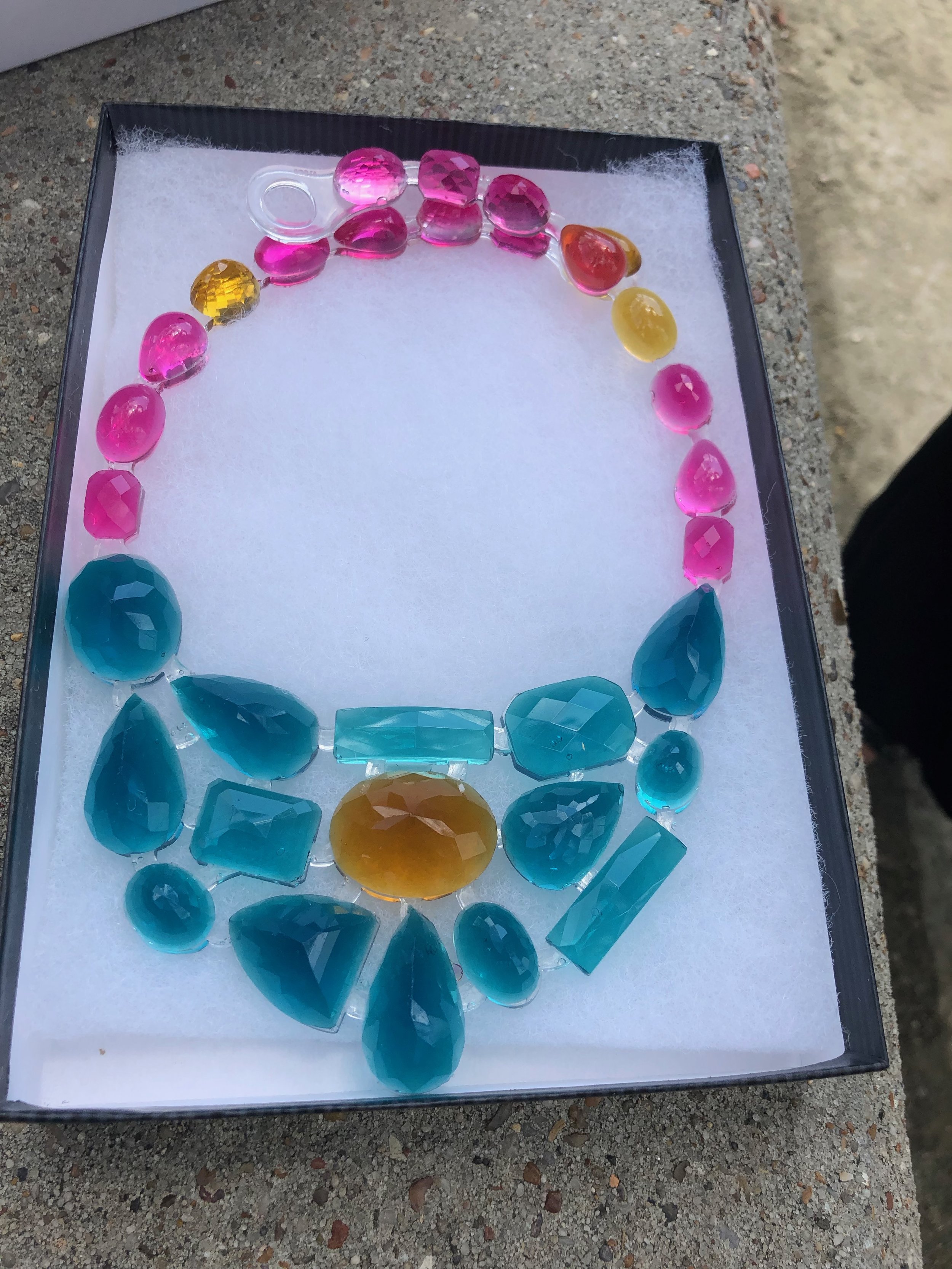The Discovery
The discovery of a severe skin allergy is bitter sweet. That moment of discovery sounds like waves crashing and the sky thundering. Stars align and you quickly go through all the moments you missed in your head. The flare-ups that caused confusion and misery. They make sense now. And they were avoidable.
That’s the silver lining. Now I know what to avoid. But it’s not so simple. Skin allergies never are simple.
My Allergic Reaction to Leather & Wood Products (Sometimes)
As always, it stars with an itch. It progresses to little red bumps that themselves get bigger, redder and itchier. The bumps spread. It gets to the point where a large area of skin is thick, inflamed, red, and itchy to an unimaginable point. Like one big, furious welt. It’ll start oozing after a week if the skin continues to be in contact with the allergen.
The Leather & Wood Products I Can’t Touch with my Bare Skin
My skin does not flareup from all leather and wood, but a few leather and wood items in my life consistently cause flareups. I’ve discovered and confirmed this in the last half year. Because I have a serious dust mite allergy, I surround myself with mainly leather and wood - no upholstered furniture.
One of my leather couches causes contact dermatitis. And, of course, it’s my Chesterfield couch from Restoration Hardware and not my sectional from Costco! The fake leather upholstered seats from my dining set also causes problems. As does my wooden desk in my work-from-home office. My desk! And my leather desk chair. And the leather on my car seats! My beautiful camel colored leather. What a shame.
And the list will probably keep growing as I touch new things.
How I Avoid My New Contact Dermatitis Allergies
Pop quiz: how does one avoid contact dermatitis? Ya don’t touch it! It turns out that it’s that simple. I still use all these items that cause allergic skin reactions, but I use a barrier so my skin doesn’t have direct contact with the culprit. I have a towel under my laptop, so my forearms touch the desk instead of my desk. I avoid using shorts, so my pants are a barrier between my legs and dangerous seats. I cocoon myself in a washable and clean blanket on my Chesterfield couch. And I avoid short dresses, skirts and shorts when I go out to avoid sitting on furniture that could cause a reaction. And by short, I mean anything that is above my knee, because the point is for there to be no bare skin touching a seat.
Why Am I Allergic to Some Wood and Leather products?
I think I’m allergic to some (not all) wood and leather products because of my contact allergy to colophony, which is also known as rosin. It is an ingredient in many products, from makeup to topical medication, furniture … even asphalt! It is also found in lubricants, polishes, lacquers and varnishes.
How I Treat My Skin’s Allergic Reactions
I sure did learn the hard way that the best way to treat my eczema (assuming it’s caused by a skin allergy) is to LET IT BE. Most importantly, I stop exposing my skin to my allergen when it starts and before it gets terrible. If it gets out of hand and gets terrible, I ride it out. No steroids, no non-steroid topicals like Elidel or Protopic … not even moisturizer. I do wash the flared area with CLn Bodywash and use antihistamines like Claritin and Zyrtec daily, both of which I think helps.
And it works! If contact with the allergen is stopped, within one week my skin turns itself around and starts improving. Often, within two weeks, it’s healed almost completely or is at least going through the shedding process and headed towards complete healing.
I feel so liberated from not using eczema medication anymore. I now tackle the root of my eczema problem - the triggers. Though, my triggers are so widespread and ridiculous that I feel shackled by them some days. But, hey, one win at a time!












